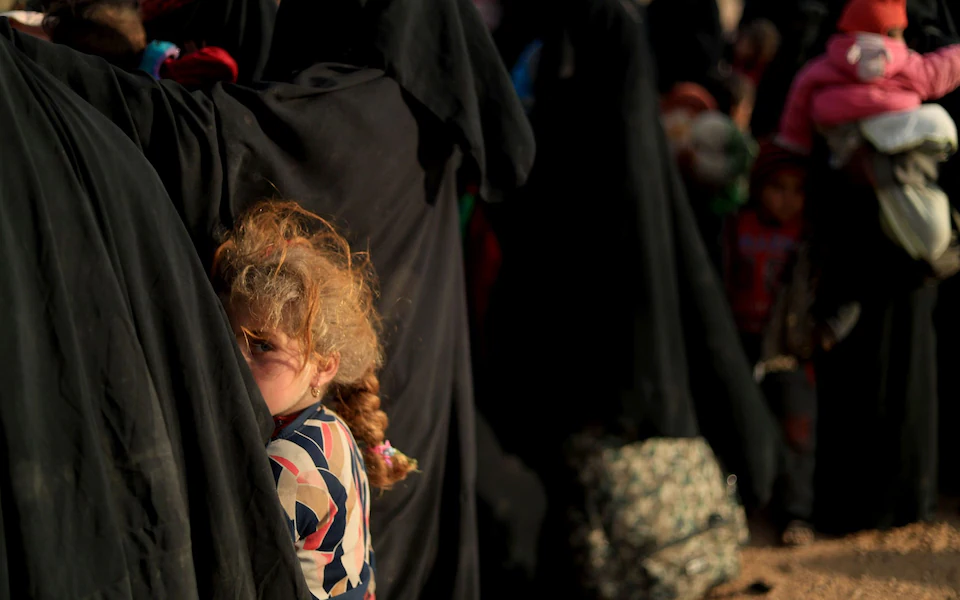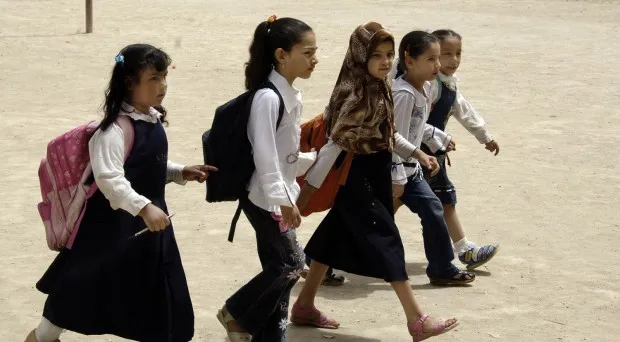Iraq is on the verge of reducing the legal age of consent from 18 to nine, enabling men to marry very young children.
This proposed change in law would also strip women of key rights, including the ability to divorce, gain custody of their children, and inherit property.
The amendment, expected to pass in Iraq’s parliament, is supported by a coalition of conservative Shia Muslim parties who aim to dismantle the country’s progressive “personal status law” from 1959.

Known as Law 188, this legislation has been regarded as one of the Middle East’s most forward-thinking family laws, applying a unified set of family regulations to all Iraqis, regardless of religious background.
Along with lowering the marriage age, the amendment threatens to erase women’s rights to divorce, child custody, and inheritance. Advocates of the amendment claim it upholds a strict interpretation of Islamic law and shields young girls from “immoral relationships.”
The proposal passed a crucial second reading in parliament on September 16. This isn’t the first attempt by Shia factions in Iraq to alter the personal status law; prior efforts in 2014 and 2017 met fierce resistance from women’s rights groups.
However, this time, the coalition’s parliamentary majority brings the amendment closer to reality than ever before, according to Dr. Renad Mansour, a senior research fellow at Chatham House.
READ ALSO: Israeli Ambassador Alleges Iran of Working to Destabilise Nigeria
Dr. Mansour notes that specific Shia parties are particularly determined to pass the amendment to “consolidate their power” by appealing to religious ideology.
Experts and advocates are deeply concerned. “The amendment would not just undermine these rights,” said Sarah Sanbar of Human Rights Watch, “it would erase them.” Athraa Al-Hassan, a human rights legal adviser and director of Model Iraqi Woman, fears this could signal a shift toward a new governance model resembling Iran’s and Afghanistan’s “Guardianship of the Jurist,” where religious leaders wield supreme authority.
Iraq already has high rates of child marriage; nearly 28% of women are married by 18, a situation compounded by a loophole allowing religious leaders to officiate marriages, sometimes for girls as young as 15, with parental permission.
These unregistered marriages lack legal recognition, often leaving young brides and their children without access to basic rights like healthcare and education.
The proposed amendment would validate these marriages under law, putting girls at greater risk of abuse, limited schooling, and restricted job opportunities.
This amendment marks only the latest action by Iraq’s governing coalition to restrict women’s rights.
In April, it criminalized same-sex relationships with sentences up to 15 years and mandated replacing the term “homosexuality” with “sexual deviance” in the media. The term “gender” was also banned from use in media outlets.
As parliament readies to debate and vote on the amendments, the backlash is fierce. Activists accuse the government of attempting to “legalize child rape,” with protests erupting across Baghdad and other cities in August, organized by Coalition 188, a women’s rights group staunchly opposing changes to Law 188.
Ms. Al-Hassan, a prominent voice in the feminist movement, warned that these amendments serve political interests rather than society’s welfare. She and others worry the amendment will deepen Iraq’s sectarian rifts.
Dr. Mansour concurs, saying this could further divide Iraq along sectarian lines, complicating national unity.
If passed, the amendment would give Muslim citizens the option to choose either secular or religious law for family matters, depending on their sect.
However, the decision in any marital dispute would defer to the husband’s sect, eroding gender equality in Iraqi law.
Activists are also concerned that the amendment will leave many women, especially in lower-income communities, vulnerable and trapped in abusive marriages due to fear of losing child custody or economic security.
Ms. Al-Hassan called the amendment “very dangerous,” arguing it threatens Iraq’s judiciary and violates constitutional principles. “Iraq is a civil state with a proud history of women’s rights and achievements. We aspire to progress, not regress,” she said.
(Telegraph)
Follow the Parallel Facts channel on WhatsApp: https://whatsapp.com/channel/0029VaCQSAoHgZWiDjR3Kn2E









Leave a Reply